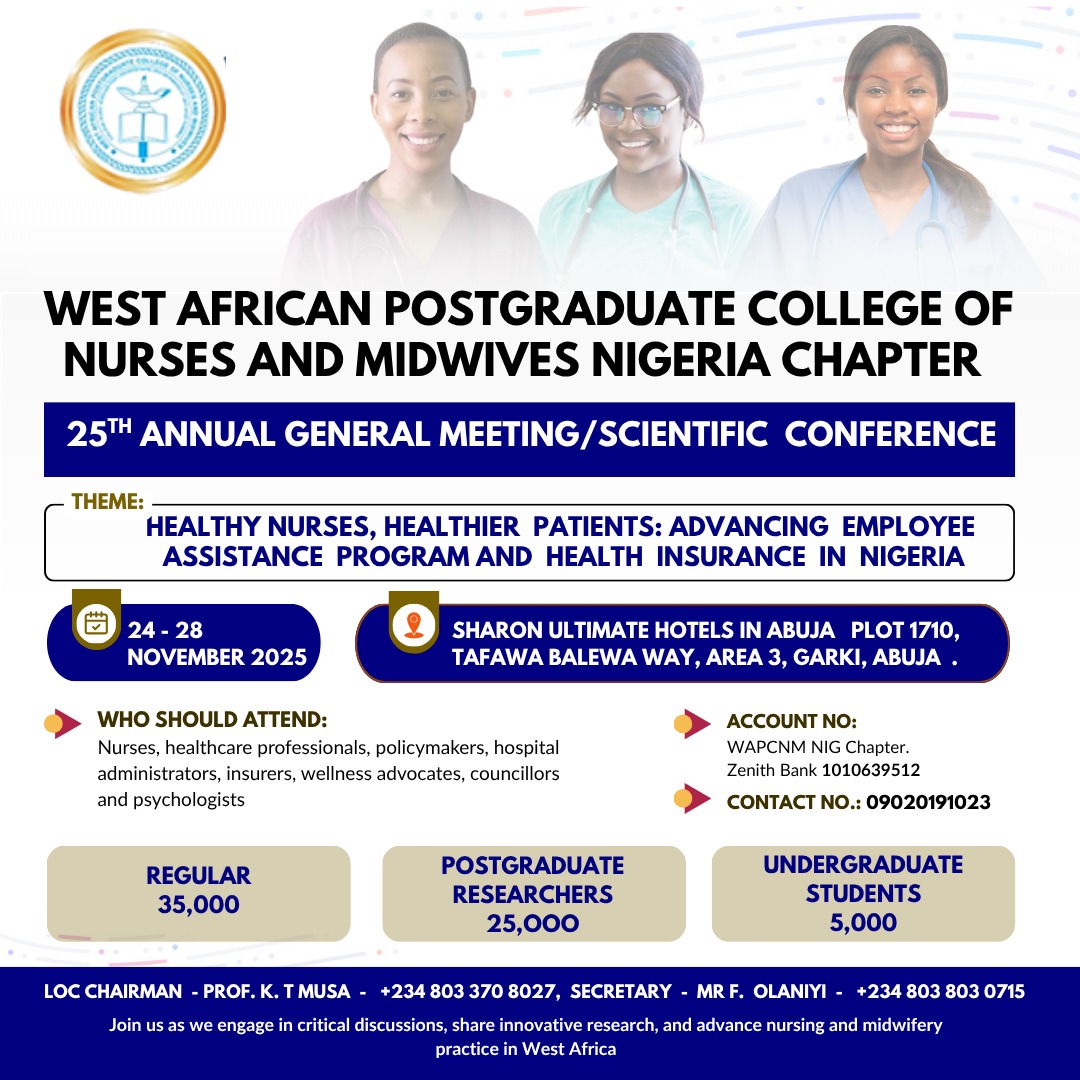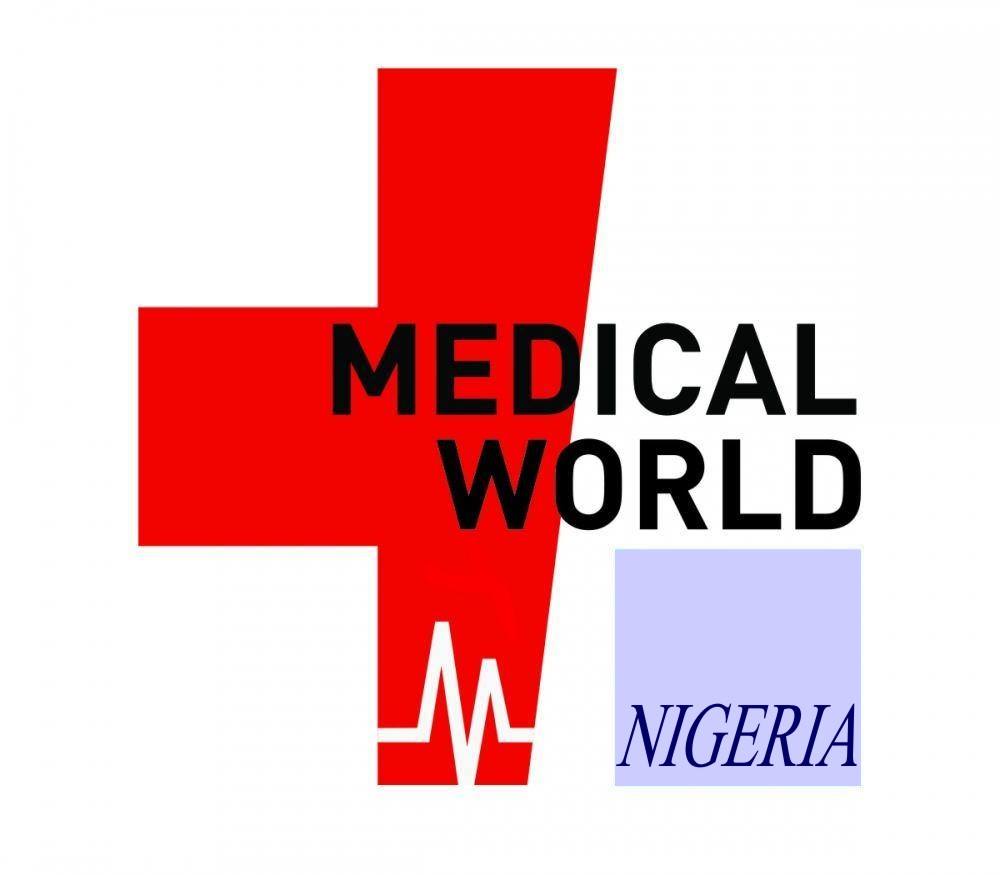Reforms of the Nursing & Midwifery Council of Nigeria (NMCN) and Her Success Story Presented By Alh. Faruk Umar Abubakar Registrar Nursing & Midwifery Council Of Nigeria At 2019 NANNA Conference Held On 2nd March, 2019 at New Jersey USA

Outline
- Introduction
- NMCN vision, mission and values
- The Reforms
- Outcomes of the Reforms
- Success Story
- Identified Challenges
- Prayers
- Conclusion
Introduction
- The primary objectives of the Nursing and Midwifery Council of Nigeria are to ensure high quality of Nursing and Midwifery education in Nigeria, maintain high standard of professional nursing and midwifery practice and enforce discipline within the profession.
- Broadly, the Council’s functions are related to those of designing, implementing and evaluating various nursing and midwifery educational programmes, of indexing, examination, registration, certification, licensure of professional nurses and midwives and monitoring standards of nursing and midwifery practice in the Country.
- The Nursing & Midwifery Council of Nigeria has among its core mandates, to ensure high quality of nursing and midwifery education in Nigeria as well as the maintenance of high standard of professional practice in line with global best practices.
- This informed the various restructuring/reforms undertaken by the council over the years in order to provide direction, to improve standard of training and quality of nursing practice to meet the evolving health care demands of our society.
Vision:
To be the foremost regulatory Council with the best nursing and midwifery professionals in the world
Mission:
To promote and maintain excellence in nursing and midwifery education and practice in Nigeria in line with global best practice
Values:
Professionalism, Transparency, Credibility, Accessibility, Responsiveness, Efficiency & Dynamism
The Reforms
- A total of nineteen Nursing and Midwifery programmes are regulated by the Council and all are currently being run as either basic or post basic across the country.
- Curricula of all the basic and post basic programmes were revised and implementation strategies carried out.
- Students intake is highly regulated and pegged at between 50- 100 for basic schools and 30 for the post basic schools depending on the available human and material resources.
- Plans are on ground to start oncology Nursing programme and other new programmes
- A number of our services are currently online in line with global trends -
- Indexing of students Nurses and Midwives
- Examination applications, processing/issuance of exams numbers and cards, Schools examination result
- Registration of newly qualified Nurses and Midwives
- Printing and production of licenses for the newly qualified Nurses and Midwives.
- Efforts are on to start application for renewal of license on/before 2nd quarter of 2019
- Plans are also at advanced stage to automate Council’s accreditation exercises
- Nursing Education Reform in Nigeria is both a product of national education and health care reforms.
- Majority of Nigerian Nurses presently are hospital trained.
- The law establishing the Nursing and Midwifery Council of Nigeria mandates it among other things to regulate the standards of nursing education and practice in Nigeria and review such standards from time to time to meet the changing needs of the society.
- Changes in nursing education have been slow but gradual and now the last quantum leap is embarked upon in the new reform.
- The NMCN will therefore be failing in her responsibility if nursing education is allowed to remain static in a dynamic society such as ours.
The strategies
- Increase in number of universities offering Bachelor of Nursing Science Degree Programme. Our target is to have a Department of Nursing Sciences in every approved university in Nigeria.
- Integration/Absorption of the various College of Nursing in the same state or within the same locality to the University offering Bachelor of Nursing Sciences.
- Collaboration with National Board on Technical Education (NBTE) to ensure academic recognition for products of Colleges of Nursing and Midwifery who are not able or willing to integrate or be absorbed by a University through a National Diploma/Higher National Diploma programme.
- All Colleges of Nursing/Midwifery have been directed to key into the NBTE programme or be absorbed by accredited Department of Nursing in a university by the year 2023.
- The post basic and nursing specialty programmes are coming on board and arrangements have commenced to absorb or run these programmes as post graduate under departments of nursing in the Universities.
- Directives have been given to all post basic schools to comply on or before 2023 (5 years from now)
Outcomes of the Reforms
- Currently, the entry requirements into the Schools of Nursing and Midwifery are the same as for the Departments of Nursing Sciences.
- Many states have passed laws or edicts establishing their institutions thereby giving such College legal backing to operate.
- Physical facilities in many Schools of Nursing and Midwifery have been upgraded to meet the minimum accreditation requirement.
- Number of academically qualified staff in the Schools of Nursing and Midwifery have increased appreciably.
- More Universities have established Department of Nursing Sciences that have the National Universities Commission and Council’s accreditation.
- More Universities have started running the MSc and PhD Nursing programmes.
- The Council in conjunction with National Board on Technical Education (NBTE) flagged the take off of the 4-year ND/HND programme on Feb. 4, 2019 in Gombe and Bauchi.
NMCN Success Story
- A total of two hundred and fifty nine (261) nursing and midwifery training institutions domiciled in the country are on the record of the Nursing & Midwifery Council of Nigeria irrespective of their accreditation status.
- The breakdown of the total is as follows:
- Schools of Nursing – 88
- Schools of Midwifery (PBM/BM) – 83
- Community Midwifery Programme – 8
- Departments of Nursing Sciences – 30
- Post Basic Nursing Specialties – 52
Accreditation Status of Nursing & Midwifery Training Institutions in Nigeria as at December 2018
| Schools | Full Accreditation | Provisional Accreditation | Embargo | Interim | Total |
| Schools of Nursing (SON) | 37 | 43 | 8 | - | 88 |
| Schools of Midwifery (SOM) | 26 | 43 | 8 | 6 | 83 |
| Community Midwifery (SOCM) | 4 | 4 | 0 | - | 8 |
| Departments of Nursing Sciences (DON) | 13 | 14 | 1 | 2 | 30 |
| Post Basic Nursing Specialties (PBN) | 18 | 29 | 3 | 2 | 52 |
| Total | 94 | 135 | 20 | 10 | 259 |
Percentage Distribution of Nursing & Midwifery Training Institutions in Nigeria as at December 2018

Accreditation Status of Nursing & Midwifery Training Institutions in Nigeria as at December 2018 (aggregate

Geopolitical Distributions of Nursing & Midwifery Training Institutions in Nigeria

General Outcome of Professional Examinations
The NMCN through the conduct of professional examinations was able to produce a total of ten thousand, five hundred and twenty six (10, 526)
Nursing Professionals in Year 2018
Breakdown by category is as follows:
- General Nurses - 5512
- Midwives - 4021
- Post Basic Nursing Specialties - 993
Numbers & Percentages of Post Basic Nursing Specialties Produced in 2018
| Nursing Specialties | Total |
| Accident & Emergency Nurses | 108 |
| Nurse Anaesthetists | 79 |
| Burns & Plastic Nurses | 21 |
| Cardiothoracic Nurses | 25 |
| Critical Care Nurses | 74 |
| Ophthalmic Nurses | 124 |
| Orthopaedic Nurses | 68 |
| Otorhinolaryngology Nurses | 49 |
| Paediatric Nurses | 133 |
| Perioperative Nurses | 130 |
| Mental Health/Psychiatric Nurses | 182 |
| Total | 993 |
Post Basic Nursing Schools that Participated in the Professional Examination in 2018
Geopolitical Distribution
| Zones | Number | % |
| South East | 7 | 18% |
| South-South | 5 | 13% |
| South West | 10 | 26% |
| North Central | 4 | 11% |
| North East | 3 | 8% |
| North West | 9 | 24% |
| Total | 38 | 100% |
NMCN Success Story
- Three hundred and thirty nine thousand, five hundred and seventy (339,570) nursing professionals of different categories registered as at December 2018
- A total of eleven thousand, four hundred and seventy seven (11, 477) nursing professionals were honourably registered and are entitled to add the prefix ‘Registered” to their professional category in 2018.
- Online registration for newly qualified nurses and midwives is 100%
Statistics of NMCN Professional Registers as at 31st December 2018
| CATEGORIES | TOTAL REGISTERED (JANUARY TO DECEMBER ) | LAST NUMBER AS AT 31ST DECEMBER 2018 |
| GENERAL NURSES | 4,922 | 180710 |
| MIDWIVES | 4,351 | 120871 |
| ACCIDENT & EMERGENCY | 99 | 2003 |
| NURSE ANAESTHETISTS | 78 | 1461 |
| BURNS & PLASTICS | 20 | 383 |
| CARDIOTHORACIC | 25 | 337 |
| CRITICAL CARE | 47 | 582 |
| OPHTHALMIC | 90 | 1559 |
| ORTHOPAEDIC | 70 | 1600 |
| OTORHINOLARYNGOLOGY | 68 | 521 |
| PAEDIATRIC | 109 | 1317 |
| PERIOPERATIVE | 191 | 3976 |
| MENTAL HEALTH | 209 | 8337 |
| OCCUPATIONAL HEALTH NURSES | 0 | 172 |
| NURSE ADMINISTRATORS | 11 | 1316 |
| PUBLIC HEALTH NURSES | 893 | 9126 |
| NURSE EDUCATORS | 216 | 3979 |
| MIDWIFE EDUCATORS | 73 | 1129 |
| PUBLIC HEALTH NURSE EDUCATORS | 5 | 191 |
| TOTAL | 11,477 | 339,570 |
NMCN Success Story
- A total of twenty eight thousand, two hundred and forty (28,240) licenses were produced and despatched in 2018.
- A total of thirty thousand, eight hundred and sixteen (30,816) professional certificates for all categories of nurses and midwives were processed and despatched successfully.
Online Professional Update Form (PUF):
- The Council has established a database for Nurses and midwives registered in Nigeria. This step would allow Council to keep track of registered Nurses and Midwives in Nigeria but can be practicing anywhere in the world.
- It would also allow council to know the distribution of Nurses and midwives across the states and local government s in Nigeria and in other parts of the world.
- Kindly visit www.portal.nmcn.gov.ng to complete the form online.
Identified Challenges
- Inadequate qualified manpower with higher degrees (MSc & PhD) in Nursing.
- Limited number of Universities in Nigeria offers Nursing at higher degrees levels. (Msc Nursing - 8, PhD Nursing - 4 )with limited admission every academic session.
- The few qualified ones available are also leaving the Country for greener pastures
Prayers to NANNA
- Technical Support is required from you to build the capacity of the Nursing and Midwifery institutions in Nigeria in:
- Research
- Opportunities for exchange programme
- Support/grants for higher degrees in Nursing programmes both home and abroad
- Continuous education programme
- Telenursing
- School/Hospital infrastructures
- Training of Clinical Nurse Specialists e.t.c.
- The Council also requires your support in the development and training of new clinical Nursing specialties in Nigeria which may include Oncology Nursing, Nursing Informatics, Nephrology Nursing, Gerontological Nursing, etc
Conclusion
- Nursing and Midwifery education and practice reforms are necessitated by the need for the development of the profession.
- It is a sure way for growth, efficiency, effectiveness, quality improvement, and enhanced public image of the nurse and the Nursing profession.
- It is a task that the Nursing and Midwifery Council of Nigeria is committed to.
- However, for success to be achieved, the support of all the stakeholders including NANNA is required.
- With unity of purpose, we would be able to restructure and take Nursing and Midwifery education and practice in Nigeria to a new and dignified pedestal.
Thank you.


